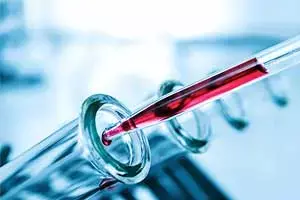- Home
- Medical news & Guidelines
- Anesthesiology
- Cardiology and CTVS
- Critical Care
- Dentistry
- Dermatology
- Diabetes and Endocrinology
- ENT
- Gastroenterology
- Medicine
- Nephrology
- Neurology
- Obstretics-Gynaecology
- Oncology
- Ophthalmology
- Orthopaedics
- Pediatrics-Neonatology
- Psychiatry
- Pulmonology
- Radiology
- Surgery
- Urology
- Laboratory Medicine
- Diet
- Nursing
- Paramedical
- Physiotherapy
- Health news
- Fact Check
- Bone Health Fact Check
- Brain Health Fact Check
- Cancer Related Fact Check
- Child Care Fact Check
- Dental and oral health fact check
- Diabetes and metabolic health fact check
- Diet and Nutrition Fact Check
- Eye and ENT Care Fact Check
- Fitness fact check
- Gut health fact check
- Heart health fact check
- Kidney health fact check
- Medical education fact check
- Men's health fact check
- Respiratory fact check
- Skin and hair care fact check
- Vaccine and Immunization fact check
- Women's health fact check
- AYUSH
- State News
- Andaman and Nicobar Islands
- Andhra Pradesh
- Arunachal Pradesh
- Assam
- Bihar
- Chandigarh
- Chattisgarh
- Dadra and Nagar Haveli
- Daman and Diu
- Delhi
- Goa
- Gujarat
- Haryana
- Himachal Pradesh
- Jammu & Kashmir
- Jharkhand
- Karnataka
- Kerala
- Ladakh
- Lakshadweep
- Madhya Pradesh
- Maharashtra
- Manipur
- Meghalaya
- Mizoram
- Nagaland
- Odisha
- Puducherry
- Punjab
- Rajasthan
- Sikkim
- Tamil Nadu
- Telangana
- Tripura
- Uttar Pradesh
- Uttrakhand
- West Bengal
- Medical Education
- Industry
Too high or low blood iron levels linked to age related diseases: Study

Genes linked to ageing that could help explain why some people age at different rates to others have been identified by scientists.
The international study using genetic data from more than a million people suggests that maintaining healthy levels of iron in the blood could be a key to ageing better and living longer.
The findings could accelerate the development of drugs to reduce age-related diseases, extend healthy years of life and increase the chances of living to old age free of disease, the researchers say.
Scientists from the University of Edinburgh and the Max Planck Institute for Biology of Ageing in Germany focused on three measures linked to biological ageing - lifespan, years of life lived free of disease (healthspan), and being extremely long-lived (longevity).
Biological ageing - the rate at which our bodies decline over time - varies between people and drives the world's most fatal diseases, including heart disease, dementia and cancers.
The researchers pooled information from three public datasets to enable an analysis in unprecedented detail. The combined dataset was equivalent to studying 1.75 million lifespans or more than 60,000 extremely long-lived people.
The team pinpointed ten regions of the genome linked to long lifespan, healthspan and longevity. They also found that gene sets linked to iron were overrepresented in their analysis of all three measures of ageing.
The researchers confirmed this using a statistical method - known as Mendelian randomisation - that suggested that genes involved in metabolising iron in the blood are partly responsible for a healthy long life.
Blood iron is affected by diet and abnormally high or low levels are linked to age-related conditions such as Parkinson's disease, liver disease and a decline in the body's ability to fight infection in older age.
The researchers say that designing a drug that could mimic the influence of genetic variation on iron metabolism could be a future step to overcome some of the effects of ageing, but caution that more work is required.
The study was funded by the Medical Research Council and is published in the journal Nature Communications with DOI 10.1038/s41467-020-17312-3.
Anonymised datasets linking genetic variation to healthspan, lifespan, and longevity were downloaded from the publically available Zenodo, Edinburgh DataShare and Longevity Genomics servers.
Dr Paul Timmers from the Usher Institute at the University of Edinburgh, said: "We are very excited by these findings as they strongly suggest that high levels of iron in the blood reduces our healthy years of life, and keeping these levels in check could prevent age-related damage. We speculate that our findings on iron metabolism might also start to explain why very high levels of iron-rich red meat in the diet has been linked to age-related conditions such as heart disease."
Dr Joris Deelen from the Max Planck Institute for Biology of Ageing in Germany, said: "Our ultimate aim is to discover how ageing is regulated and find ways to increase health during ageing. The ten regions of the genome we have discovered that are linked to lifespan, healthspan and longevity are all exciting candidates for further studies."
For more details click on the link: http://dx.doi.org/10.1038/s41467-020-17312-3
Hina Zahid Joined Medical Dialogue in 2017 with a passion to work as a Reporter. She coordinates with various national and international journals and association and covers all the stories related to Medical guidelines, Medical Journals, rare medical surgeries as well as all the updates in the medical field. Email: editorial@medicaldialogues.in. Contact no. 011-43720751
Dr Kamal Kant Kohli-MBBS, DTCD- a chest specialist with more than 30 years of practice and a flair for writing clinical articles, Dr Kamal Kant Kohli joined Medical Dialogues as a Chief Editor of Medical News. Besides writing articles, as an editor, he proofreads and verifies all the medical content published on Medical Dialogues including those coming from journals, studies,medical conferences,guidelines etc. Email: drkohli@medicaldialogues.in. Contact no. 011-43720751


